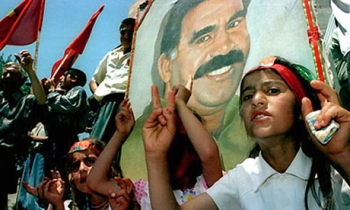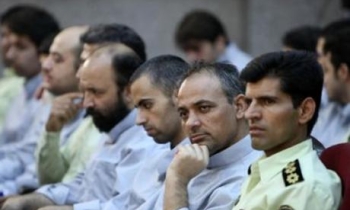The transformation of two broadcasting institutions into private entities is being seen as a negative development in Moldova’s broadcasting landscape.

The Head of the OSCE (Organisation for Security and Cooperation in Europe) Mission to Moldova, Louis O'Neill, said Monday, "The broadcasting code adopted by the Moldovan Parliament in 2006 provided the country with an excellent opportunity for real progress in creating a free and vibrant broadcasting landscape. It is disappointing to see that this chance may be lost due to missteps in the way the new legislation is being implemented."
O’Neill’s comments were triggered by recent events surrounding the transformation of the Chisinau broadcasting institutions Radio Antena-C and Euro-TV Chisinau into private companies.
In December 2006, the OSCE Mission and ten diplomatic missions accredited in Moldova issued a joint statement urging all those involved in the reorganisation of Antena-C and Euro-TV to find a solution that would ensure the continued functioning of both broadcasters, drawing on their experienced staffs. They stressed that this should neither reduce pluralism in the county's media landscape nor deprive its citizens of access to comprehensive and impartial information and public services.
"The immediate reduction in news and information programming at Antena-C and the change in its broadcasting schedule following privatization, as well as the decision by its new owner to dismiss the station's deputy directors and to drastically reduce the number of journalists show a disregard for these recommendations," O'Neill said.
He also expressed concern about the pace of reforms at Moldova's national public broadcaster, Teleradio Moldova. "Teleradio Moldova has made almost no progress towards becoming a truly independent public service broadcaster since its formal transformation in August 2004," O'Neill said. "The newly elected Supervisory Board should lose no more time in initiating fundamental and visible changes in the way the broadcaster reflects public and political life in the country."
Referring to a recent decision by the Broadcasting Coordination Council not to give priority to an incumbent license holder during a recent frequency tender, but rather to award the license to a new company, O'Neill stressed the need for transparent decisions on all matters related to the licensing of broadcasting institutions.
"This decision should be explained and supported by compelling arguments to avoid the appearance of political or financial impropriety," O'Neill said. "Every effort should also be made to avoid dead air time during the transfer of frequencies, which deprives the Moldovan people of media access."
In December last, the Vienna-based South East Europe Media Organisation (SEEMO), a network of editors, media executives and leading journalists from South East Europe, had urged all those involved in the process of reorganisation to find an equitable solution that ensures the normal functioning of both media. “It is important for every country to have local electronic media that provide citizens with access to comprehensive and impartial information,†it said.
"We are fighting an unfair privatisation," Corina Cepoi, interim director of the Chisinau-based Independent Journalism Centre told Inter-Press Service (IPS) last month. "All NGOs, interest groups had access to these channels before, and now we don't know what will happen."
Antena C is seen by the communists as an important strategic asset ahead of the local elections to take place in May. With a large rural electorate, reaching Moldova's agricultural heartland is often only possible through Antena C, one of the few media outlets broadcasting nationwide.
Moldova, a post-Soviet Republic of 4.5 million bordering Ukraine and Romania, is the poorest country in Europe in spite of 16 years of democratic reform. Since 2001, it has been governed by a pro-European Communist Party.
Before the Communist Party's crushing victory in the 2001 parliamentary elections that gave them 70 per cent of seats, no political force had managed to articulate a coherent media policy due to a very fragmented political culture. The communists proved much more able to relate to the common voter, showing greater discipline and internal cohesion, and becoming the only party with a nationwide, well-organised grassroots network.
Their government brought stability and economic growth to a country disillusioned with chaotic liberal economic reforms, winning genuine popularity and securing a second term in office in 2005 in spite of misgivings with the media. The Party is a mixture of moderate and more orthodox communists who have agreed on a pragmatic route for governing Moldova. The communists nominally stand for civil and human rights as essential to a modern socialist ideology, ensure respect for all forms of ownership and aspire to integration in the European Union (EU).









